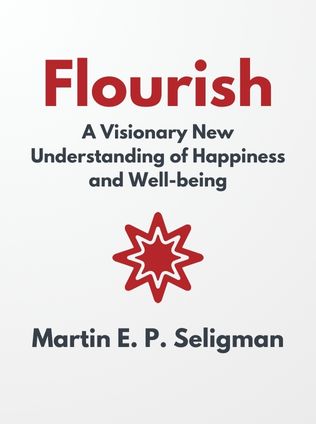
Flourish
A Visionary New Understanding of Happiness and Well-being
By Martin E. P. Seligman
Published 04/2011
About the Author
Martin E. P. Seligman is widely regarded as one of the founding fathers of positive psychology, a branch of psychology that shifts the focus from treating mental illness to fostering mental well-being. Born in Albany, New York, Seligman earned his Ph.D. in psychology from the University of Pennsylvania, where he currently serves as the Director of the Penn Positive Psychology Center. Over the course of his distinguished career, Seligman has published numerous books and articles that have profoundly influenced both academic research and practical applications in psychology. His work centers on the idea that psychology should not only aim to alleviate suffering but also enhance human flourishing. His other best-selling books, such as "Learned Optimism" and "Authentic Happiness," have introduced millions to the concepts of optimism and positive emotion as essential components of a good life.
In "Flourish," Seligman expands on his previous work by proposing that happiness alone is not sufficient for a meaningful and fulfilling life. Instead, he argues that well-being, which includes elements like positive emotion, engagement, meaning, relationships, and accomplishment, is the true measure of a flourishing life. Seligman’s insights have had a profound impact on how individuals, institutions, and even governments approach the concept of well-being.
Main Idea
"Flourish" challenges the conventional wisdom that happiness is the ultimate goal in life. Instead, Seligman introduces a new theory of well-being that encompasses five distinct elements: positive emotion, engagement, meaning, relationships, and accomplishment. According to Seligman, these elements, when cultivated together, lead to a richer, more fulfilling life. The book is not just a theoretical exploration but a practical guide, offering tools and exercises that individuals can use to enhance their own well-being. Seligman also discusses how positive psychology can be applied at a societal level to improve the well-being of communities and nations.
Table of Contents
- Introduction: Beyond Happiness
- Theoretical Foundations: The Five Elements of Well-Being
- Positive Psychology in Practice: Tools for Flourishing
- The Role of Institutions: Schools, Workplaces, and the Military
- Well-Being at the National Level: Measuring Success Beyond GDP
- Conclusion: The Future of Flourishing
Introduction: Beyond Happiness
Seligman begins by questioning the long-held belief that happiness is the ultimate goal in life. While happiness, defined as the experience of positive emotions, is certainly desirable, Seligman argues that it is not enough to guarantee a meaningful or fulfilling life. He points out that happiness is often fleeting and can be influenced by external factors beyond our control. Instead, Seligman proposes that well-being, a broader concept that includes five key elements, is a more reliable and holistic measure of a good life.
Sign up for FREE and get access to 1,400+ books summaries.
You May Also Like
The Subtle Art of Not Giving a F*ck
A Counterintuitive Approach to Living a Good Life
By Mark MansonRich Dad Poor Dad
What the Rich Teach Their Kids About Money - That the Poor and Middle Class Do Not!
By Robert T. KiyosakiHow To Win Friends and Influence People
The All-Time Classic Manual Of People Skills
By Dale CarnegieFreakonomics
A Rogue Economist Explores the Hidden Side of Everything
By Steven D. Levitt and Stephen J. Dubner



















